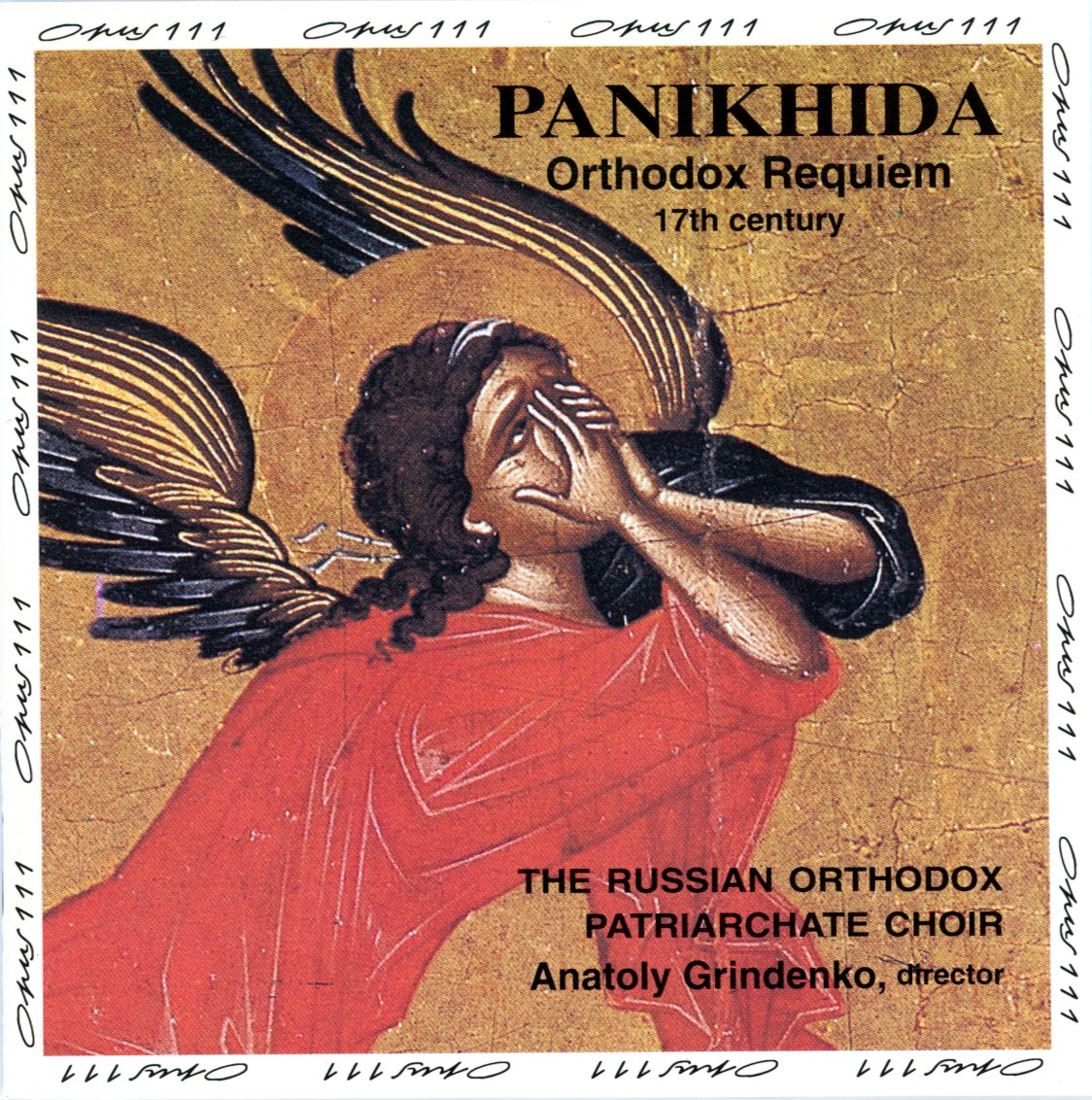Panikhida: Orthodox Requiem
Panikhida: Orthodox Requiem 17th Century
Director: Anatoly Grindenko 
Producer and engineer: Yolanta Skura
Editing: Arnaud Moral
Recording: Opus Productions, Paris
Recorded in 1994
Choir Members
- Balkarov, Victor (tenor)
- Koulebiakin, Valentin (tenor, solo Trisagion)
- Korolev, Victor (tenor)
- Meleniako, Michail (tenor)
- Zakirov, Alexandre (baritone)
- Jouravlev, Andrei (baritone)
- Feodorov, Alexander (baritone)
- Poutschkin, Igor (bass)
- Tarassov, Alexei (bass)
- Vichniakov, Iouri (bass: solo, psalm 118)
- Kovalev, Oleg (bass: solo, psalm 118, canon)
About
The Orthodox Great Panikhida, or requiem office for the dead, is a short sequence of prayers for the remission of sins and eternal rest of a deceased person in the Kingdom of Heaven. Panikhida canticles portray the path destined from man: for transgressing a commandment, man returns to the dust whence he was taken; yet however, many his sins, man still persists as an "image of divine glory", created in the image and after the likeness of God. Therefore, the Church prays to the Lord, in His ineffable mercy, to forgive the deceased his sins and admit him into His Kingdom.
According to the Russian scholar Alexander Dmitriyevsky, the order of the Universal Panikhida was established by Ivan the Terrible in 1548. The Great Panikhida, also called parastasis, includes more canticles than ordinary panikhidas, in particular, Psalm 117(118) and full canon.
Before the 18th century, and until recently among old believers, the panikhida was sung in plainsong monodion. Hundreds of neumatic manuscripts feature versions of this requiem service for a single voice. The earliest samples of requiem canticles are found in the 15th century manuscripts; many others are found in modern Old Rite manuscripts.
This recording, however, offers a unique version of the panikhida. It was deciphered from a three-voice manuscript from the late 17th century, now housed in the State History Museum. This three-voice panikhida represents old Russian non-linear polyphonic chant that has no stylistic parallels in western European music.
Source: CD Brochure


